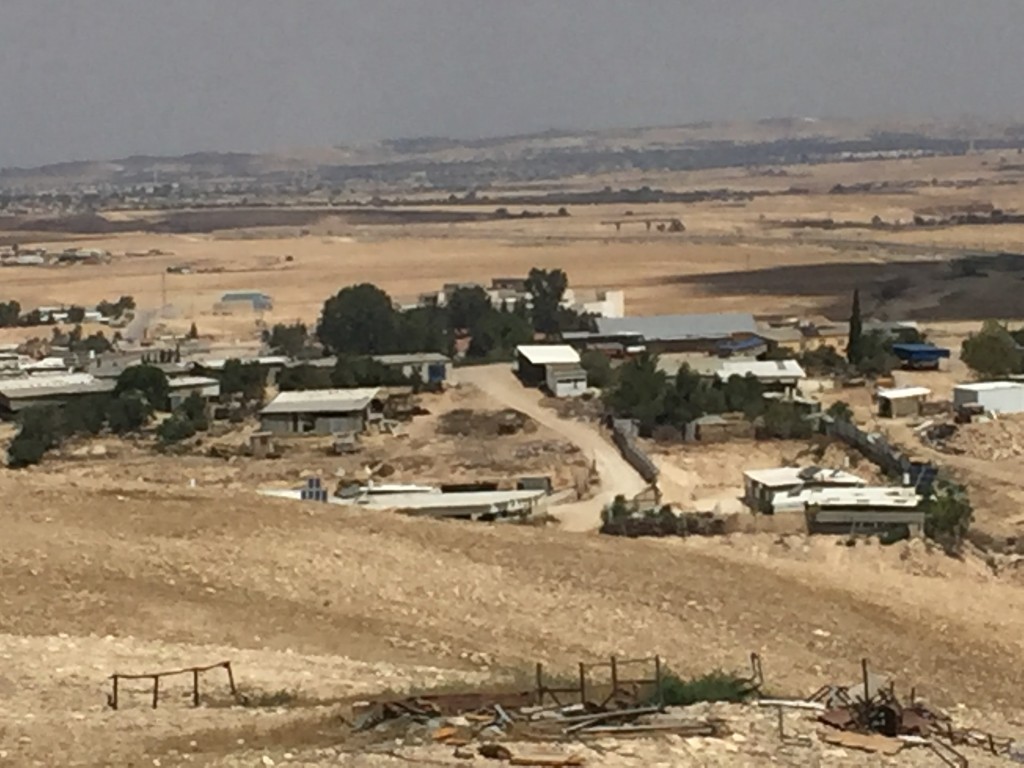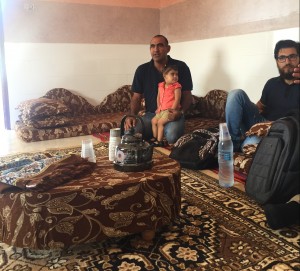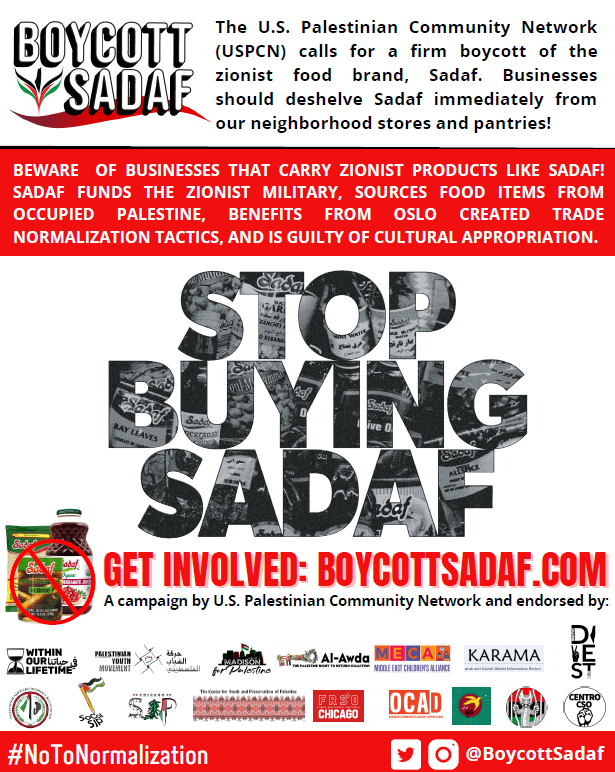Help Support USPCN’s Delegation to Palestine! Donate here!
USPCN is in 1948 Palestine for a second day. We toured the Naqab (major desert area in the south of 1948 Palestine), which accounts for 2/3 of the land within Israel, and is home to the largest Bedouin community in the world. There we met with one of the families that has been on the frontlines for generations, resisting Israeli apartheid.
During a presentation by Bashir, a local activist and organizer with the Arab-Jewish Center for Equality, Empowerment and Cooperation and Negev Institute for Strategies of Peace and Development (AJEEC-NISPED), we learned about the

impacts of the 1965 Agricultural Law. This legislation declared the Naqab an agricultural zone, and outlawed the vast majority of the indigenous Bedouin community, leading to the displacement of thousands.
Bashir described the efforts of local communities to get their villages recognized by the state. Unrecognized villages are filled with Palestinian Bedouins who pay their fair share of taxes, but are denied human rights and basic services like water and electricity. Even though Israel has denied these resources to them, the Bedouins have remained self-sustaining by providing their own alternatives.
By utilizing another policy it calls urbanization, Israel forces the Bedouins out of their homes and offers them “compensation” to move somewhere else. The areas to which they are moved are invariably more enclosed than where they are comfortable. Then the state transfers Israeli Jews into the area the Bedouins were forced from, continuously displacing them.
This is further proof of Israel’s consistent policy of land expropriation and other attacks on Palestinians, even those with Israeli citizenship.
Bashir (right) then took us on a tour to the village of Al Zarnog, where we met Jaber (left, with his daughter), a local councilman.  Jaber is a kind and welcoming man. He served us coffee and tea, and then gave us a history of his village and family, mesmerizing us with stories of hundreds of years of Bedouin life in Palestine before the Nakba.
Jaber is a kind and welcoming man. He served us coffee and tea, and then gave us a history of his village and family, mesmerizing us with stories of hundreds of years of Bedouin life in Palestine before the Nakba.
Israel refuses to recognize his village, and makes it extremely difficult to survive. The villagers’ homes get demolished if they try to remodel them or make additions to their space. Israel even uses drones that hover above the village to make sure there is no update or expansion to property. These Palestinians are living under constant oppression and threats to their peace and security.
When we asked Jaber at the end of our visit how we can support the struggle of his people and the Bedouin community, he responded simply, “Continue to visit us and go back to the U.S. and just spread the truth…everyone should know how we are forced to live, and who we are!”
Please stay tuned for another update tomorrow, and follow us on social media @uspcn, as our delegates continue to post updates live from the homeland.
Until Liberation & Return,
USPCN
June 3, 2018
![Day 2 of the Delegation: USPCN Visits Bedouin Communities in 1948 Palestine Help Support USPCN’s Delegation to Palestine! Donate here! USPCN is in 1948 Palestine for a second day. We toured the Naqab (major desert area in the south of 1948 Palestine), […]](https://uspcn.org/wp/wp/wp-content/uploads/2018/06/bedouin-area2-620x300.jpg)

